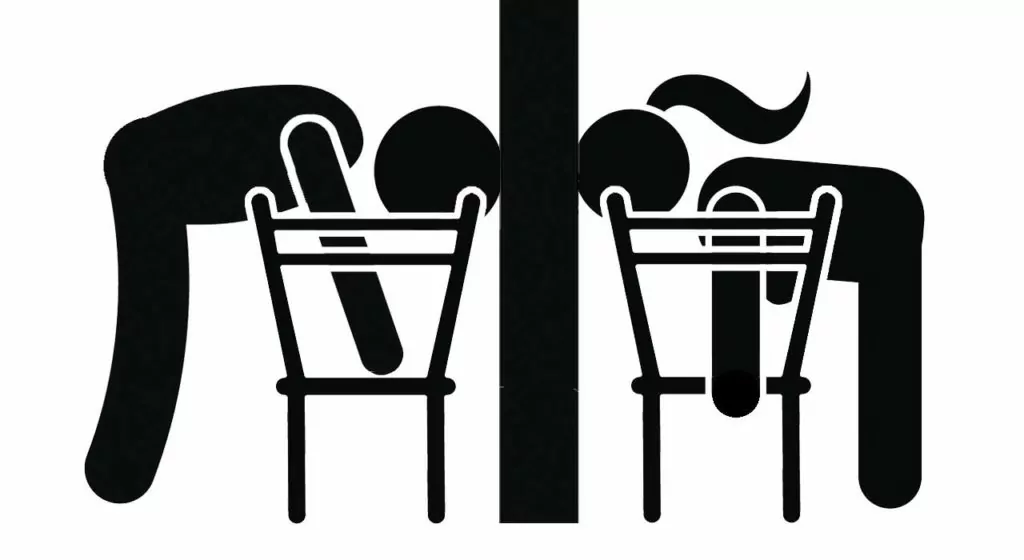
Gender roles
Striving to be godly men
A men's conference that had to turn hundreds away can now be watched online
*****
I don’t think I can quite grasp the measure of tension that must have seized the hearts of those three young men on the morning of November 2. Months before they had together hatched the concept of a Men’s Conference pitched to encourage men to provide support to one another in the abundant strife of this mortal life. They’d cobbled together a web presence to push out the concept, had highlighted the featured speakers and invited expressions of intent to join the effort.
Slowly momentum for the event had grown. A few dozen said they’d come…, then a hundred, two hundred…, five hundred – and ultimately more than 750 men from across Ontario (and beyond!) raised a finger to commit to coming to Smithville to attend the 2024 Strive Conference! But the venue could seat only 550; the three spearheading the initiative had to tell more than 200 men that they were placed on a waiting list.
Why would three family men expend the effort to organize a Men’s Conference? Why seek to capture its purpose under the term Strive? And why would so many men give up their normal Saturday routines to seek encouragement to strive together? What was this huge interest saying?
This was autumn 2024. For months and years already Christian straight men had been told to sit down and shut up; it was time for women to give leadership, for people of alternate sexual orientation to shine, for minorities of all sorts to take the reins.
How were the sidelined meant to respond to that signal? The three men who birthed this Strive Conference saw the need to encourage men to push back against this effort to emasculate Christian men. As the autumn of 2024 unfolded, awareness grew across our civilization that men needed to dare to be men. Instead of sitting down placidly and passively, men should boldly strive to be the men God created us to be. More than 750 men from some 14 denominations understood the need and sought encouragement in the battle.
But planning a conference is one thing. Making sure it runs smoothly is another, especially when attendance demonstrates the Strive concept hit a nerve. Would the plans deliver?? I dare to say that Scott, Dan & Kevin had to be men to handle the nervous tension that invariably dominated their collective persona that morning.
Strive
The term “strive” appears in numerous passages of Scripture in the context of encouraging Christians in the battles of faith. The passage that featured in this Strive Conference was Phil 1:27f, where the apostle Paul instructed his readers:
“Only let your manner of life be worthy of the gospel of Christ, so that whether I come and see you or am absent, I may hear of you that you are standing firm in one spirit, with one mind striving side by side for the faith of the gospel, and not frightened in anything by your opponents.”
The concept of Christian men battling alongside each other in the face of serious opposition lies at the heart of God’s will for His people as we live in our present world. Such striving needs encouragement, equipping, arming.
Three speakers had been lined up to open the Word of God for us listeners eager to understand better how we can best strive side by side to be the men God wants us to be.
Speakers
Dr Will denHollander, professor of New Testament at the Canadian Reformed Theological Seminary, started us off with an address under the promising title: “Be Complete: the Word of God for the Man of God” (asking our attention for 2 Tim 3:16f). On the basis of that Scripture, he drew out that the “man of God” has all the resources he needs to “be complete, equipped for every good work” – for the Lord God has given us a God-breathing Bible that prepares us to handle all the hard questions of our day.
The obstacle we face is not a lack of resources to handle the battles of life but is rather that we too often choose to give some other activity greater priority over reading and wrestling with God’s divine Word in the face of today’s challenges. So we end up floundering in the dark in the midst of those challenges, unable to function as the men of God we otherwise can be. The speaker’s public admission to his own personal struggles added considerable credence to his encouragement to us to be men of the Word – both personally and side-by-side.
Dr. Ian Wildeboer, pastor at Mercy Christian Church in Hamilton, followed with an address that could not help but hold the attention of today’s men: "Men in covenant with God: Guarding our hearts and those we love from Sodom." He ably laid a finger on the fact that Lot chose to live in Sodom and made his decision on the basis of present-day comforts. The potential price to his family did not seem to play a role in making the decision or in sticking with it.
We cannot get out of our world, but we can certainly take responsibility for how living in our world impacts our families. Here was a challenge to us to have our eyes wide open to the abundant attacks of our families and how we men can best strive side by side to protect those whom God has entrusted to our care so that in turn they flourish in God’s service.
After a hearty lunch of pulled pork on a bun capably served by a number of ladies from the John Calvin Christian School in Smithville (and the bonus of lots of valuable heart-to-heart conversations among the attendees), a third talk followed; Rev Al Besuyen, pastor of Zion United Reformed Church in Sheffield, encouraged us to “Strive for Godliness in our leisure time.”
Speaking from personal experience, he pressed on us that misuse of leisure time can become a trap that takes us to places where we cannot strive side by side as men of God. He urged us to recognize that the time we receive has purpose: it’s not for self and personal preferences but is opportunity to serve the other in service to the Master of all time. In service to others we’re also making ourselves available for another to encourage ourself.
A panel discussion followed the three speeches, under the capable leadership of Rev Rolf denHollander from Living Light Canadian Reformed Church of Grimsby. As he pulled the material of the day together with the assistance of the three speakers, perhaps the most unforgettable moment was when a brother, once a slave to alcohol, expressed the fervent hope that soon he could drink the wine new in the kingdom of God with Christ himself. Till then, total abstinence. Yes, it’s a fight, one in which we need one another. His public testimony was distinctly an inspiration to many.
Singing
Interspersed throughout the day were multiple opportunities for the assembled men to sing the praises of the God in whose service we battle. 550 men on their feet, under the leadership of capable musicians using various instruments – it truly was momentous, stirring, most heartening. And then the accompaniment ceased… and 550 men were on their own, side by side leaning into the privilege of raising voices and hearts to God Most High with eager abandon, each line building on the previous in volume and joy and enthusiasm – as here and there men reached up a hand to dry an eye at the sheer beauty and majesty of together delighting in the God whose servants we may be. To so many of us Ps. 150 will never be sung the same again.
Example
In concluding remarks, a grateful participant made mention of the fact that God’s first words to the man Adam was the instruction to guard and keep the garden – for God knew there was an enemy out there intent on hijacking God’s world. Where Adam failed, Christ Jesus did not. Now the task still to guard God’s world remains. Organizers Dan and Kevin and Scott set us an example in doing precisely that, striving side by side to pull off an excellent conference!
The 550 men then headed out in all directions. I dare say the conference sparked in every participant a renewed determination never to sit down and shut up, but instead to stand tall together in the battle, striving side by side in struggles against pornography, gambling, alcohol misuse, drug abuse, slothfulness and countless other vices seeking to emasculate men of God.
May Strive 2025 be just as successful.
Information on the 2025 Strive Conference will be posted to www.StriveMensConference.com as it is developed.





















